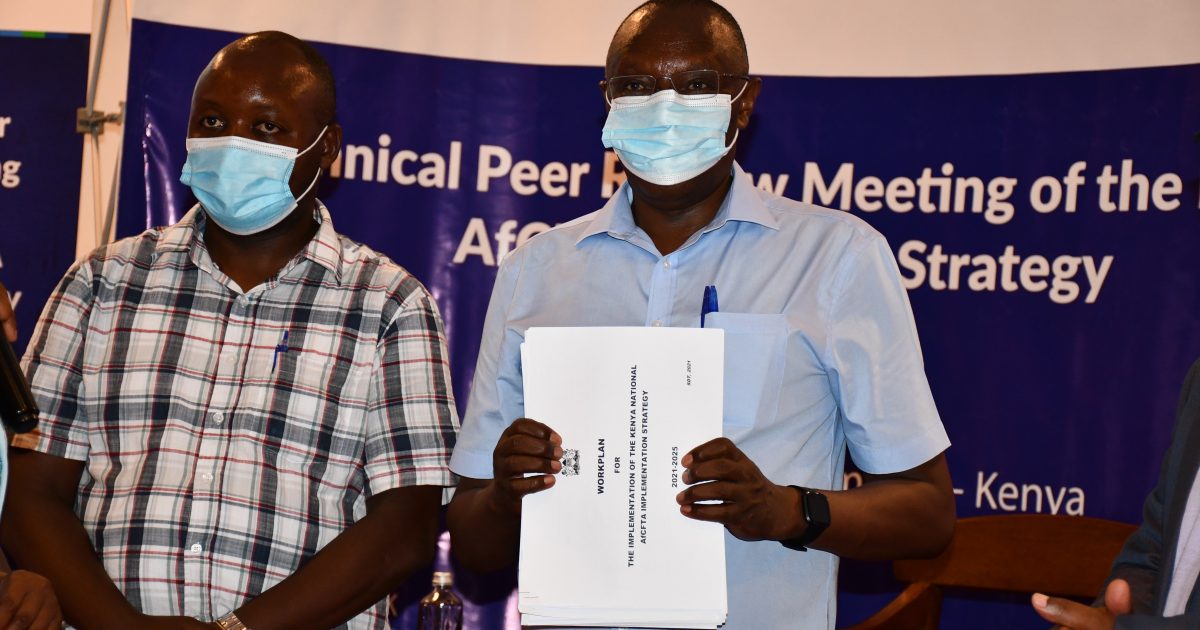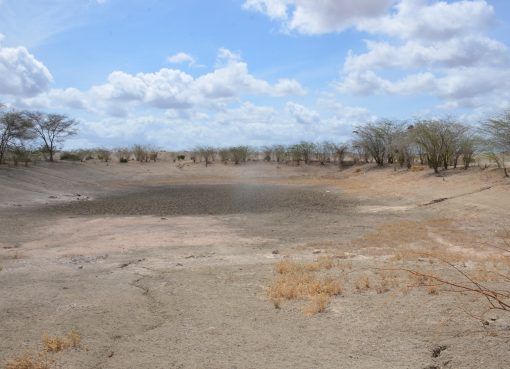Trade Principal Secretary Amb. Johnson Weru has told international business partners to offer technical knowledge to local manufacturers in order to promote Kenyan export business.
Speaking during the closing ceremony of Kenya Africa free Trade Area (AfCFTA) in Mombasa Friday, Weru noted that the recently signed partnership should make Kenyans reap big in terms of businesses and employment.
“We want to see the benefits of this partnership in our local markets. Don’t give us money for workshops but money to acquire technology on how we can boost local manufacturing and exports,” he said.
Kenya is one of the 36 countries that have ratified the agreement, which provides an opportunity for Africa to create the world’s largest free trade area with the potential to unite more than 1.2 billion people in a $2.5 trillion economic bloc and usher in a new era of development.
In a meeting to discuss and finalize a strategy on how the free trade area is going to benefit members, the PS said Kenya is keen to expand its supply capacity and increase its exports of goods and services across Africa and other global markets.
“We transform people by giving opportunities and information on how to access those opportunities and leading by examples. As a government, we came up with the Buy Kenya Build Kenya campaign as a way to promote consumption of domestic products,” he said.
AfCFTA is a flagship project of the African Union’s Agenda 2063. The aim of this trade agreement is to boost intra-African trade among the 54 member states within the African continent.
For member states to exploit the potential benefits presented by this ambitious trade framework, the African Union Commission in partnership with the United Nations Economic Commission for Africa (UNECA) is supporting member states to develop AfCFTA implementation strategies at national and regional levels.
Kenya started the process of developing its National AfCFTA Implementation Strategy in November 2019 and the draft has since been subjected to public participation twice, with views of all stakeholders from both private and public sector consolidated into the current strategy.
According to AfCFTA, UNECA Director in Eastern Africa Mama Keita, the agreement is the greatest potential to foster regional economic integration and economic growth, to take Africa to the next level, even in the midst of a crippling COVID-19 pandemic.
“Implementation of the AfCFTA will lead to exponential growth in the manufacturing sector, export diversification and creation of quality jobs,” she said.
By Chari Suche





